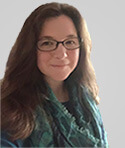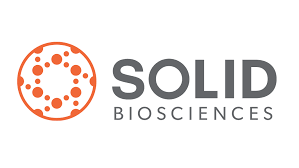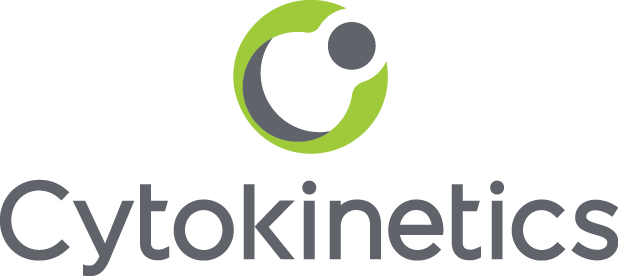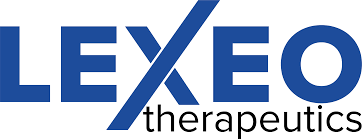Written by Shawn Lake

In the Spring of 2018, Sarah Schaff was in Denver to take the first steps toward donating part of her liver to her stepbrother, who had a rare liver condition. She would have a few tests and then head for the Henry Mountains in Utah for a hiking trip.
It almost worked out that way. Among the tests was an EKG, which showed a slight cardiac abnormality. That led to an echocardiogram, which revealed that Sarah’s heart muscle function was severely reduced. A measure of the heart muscle contraction function called an ejection fraction was approximately 20 percent (normal is 50 percent or greater).
Sarah’s stepbrother eventually had his transplant and is doing well. But Sarah wasn’t the donor — instead she was diagnosed with dilated cardiomyopathy (DCM) at the age of 38. (*Please read medical disclaimer below.)
With no heart failure symptoms, Sarah is a good example of the variability of this condition. In fact, she didn’t let her diagnosis stand in the way of her vacation. She did the hike in Utah, in mountains as high as 12,000 feet.
“I haven’t had any limitations,” she says. “I go hiking a lot on the Appalachian Trail. It’s a very unusual case.”
Getting Answers
Sarah has a degree in philosophy, which tends to make her ask a lot of questions — a habit that has served her well since her unexpected diagnosis.
“Whenever you’re working with a cardiologist or a team of caregivers, look for one with whom you can communicate well,” Sarah says. “Don’t be afraid to ask for a second or third opinion.”
Sarah did just that, after returning home and meeting with a team who described her only options: ICD, LVAD, and eventual transplant.
Interested in medication and genetics research, Sarah decided to seek a second opinion.
“I eventually transferred to a different cardiology clinic with a team I could talk more openly with about research and options,” Sarah says.
Sarah’s mom, Wendy Flowers, agrees that patients need to be their own advocates. “It’s difficult for cardiologists to know everything about every heart disease, specifically the familial genetics as related to DCM,” she says. “That makes it important to find a team that is helpful for your particular condition.”
Contributing to Research
Later, Sarah was able to see Dr. Ray Hershberger, principal investigator for the DCM Research Project. The DCM Research Project focuses on the genetic causes of DCM. Sarah agreed to participate in a DCM genetics study at Ohio State University (OSU).
“Both myself and my parents got tested at OSU with Dr. Hershberger’s team,” Sarah says. Her genetic testing showed one pathogenic variant (P), one likely pathogenic variant (LP) and one variant of unknown significance (VUS). This information, along with the genetic profiles of her mother and father, will add to the knowledge base about the genetics of DCM.
Sarah’s extended family also wants to learn more about their likelihood for developing DCM. “My mom is from a very large family and they all want to get tested. I also have cousins that are just starting to get married and thinking about having children, and we want to make sure they know what their genetic profiles are,” Sarah says.
Coping With DCM
For a young person with no heart symptoms, Sarah’s diagnosis was a shock to her and her family. But according to Sarah, she reached acceptance before her parents did.
“You have to go through a grieving process, to grieve the life you thought you were going to have and figure out what your new normal is,” she says. “That was an easier process for me than for everyone around me, who really wanted to find a fix.”
Part of Sarah’s new normal is taking medications, which was difficult at first. In fact, fatigue from taking the beta blocker metoprolol was the only physical problem she’s had with her condition. And since she has both atrial fibrillation and ventricular tachycardia, types of arrhythmias associated with DCM, Sarah wore a LifeVest® wearable defibrillator before getting an ICD.
“I’m much happier with the ICD than I was with the LifeVest, but it was an important step for me,” she says. “The physical reality of the vest helped me work through the emotional reality and my acceptance of what DCM will mean to my daily life.”
Sarah and her mom both feel that the more they know about DCM the better. Meeting other families who are dealing with this condition, as they did at the April 2019 DCM Symposium at Ohio State University, has also helped.
“Just seeing the number of patients who have had ICDs and transplants and have lived a long time made me feel a lot better,” Wendy says. “People should reach out to other patients and family members for support.” One way to connect with other patients and family members is through the DCM Foundation Forums page.
For Sarah, the time right after her diagnosis was the most stressful. “You have to give yourself time to go through the roller coaster first,” she says. “Now, with reading about success stories I’ve been finding a lot of hope.”
Sarah’s research into her condition, along with her natural optimism, have led her to the following message for others with dilated cardiomyopathy:
“It’s not over yet. Regardless of what your prognosis is, or what your actual diagnosis is, you’re still here.”
Today, Sarah volunteers her time facilitating online patient support groups for the DCM Foundation. To learn more about these support groups, please email aburkhart@dcmfoundation.org.
*Medical Disclaimer: All DCM patients are different. Information presented on the DCM Foundation website is not intended to be a substitute for professional medical advice, diagnosis, or treatment. Please consult your physician, cardiologist, or other qualified health providers with any questions you may have regarding a medical condition and/or before doing any activity.









